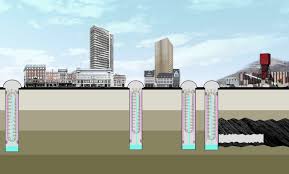
I was inspired to write this bit by a post from John Birmingham on cheeseburgergothic.com. He describes the importance of learning to deal with physical confrontations both in competition, and in real life. Mr. Birmingham is a brown belt in jujitsu, two bars, so he knows of what he speaks. It was a good piece. Here’s my subjective bit about how the body reacts, how one thinks, during intense physical and mental stress.
To the best of my knowledge, there are no photos of me in combat. The image above is the best I can do, it was taken upon my return to base after three weeks of close combat in a forbidding mountain valley nestled deep in the Hindu Kush.
Combat is an ugly word. I still get shivers when I think of it. Combat entails people trying to kill you in the dark, feeling naked and vulnerable beneath the stars above. It is the feeling of recoil against your shoulder, radio calls, falling leaves from trees and bushes. Combat is screaming. Combat means blood, lots of it, sticky pools of spreading black/red.
But before combat is something worse. It’s anticipation. Sudden combat is best, there is no time to think, only time to react. Someone opens up on you, you respond without thinking. While lethal and shocking, it’s better than knowing for long hours that you are going to assault a known enemy position, starting at time X.
Because this is a subjective piece, I can only speak for my reactions. I would smoke cigarette after cigarette, frequently lighting one with the cherry of the previous. I would obsessively go over the plan. Check my gear and the gear of my soldiers, over and over. Jump a little when a vehicle would start, or the word would come down to move out on foot. Felt the frequent need to piss, sometimes I would do it on the move. My hands would be numb. Whether this was physiological or a function of the weight of my equipment (usually about ninety pounds), I don’t know.
As the objective got closer, some village or terrain feature with a dark aura, my guts would gurgle, my mouth went dry, the lips compressed into a tight line. I can’t remember sweating, but my pulse would pound like a jackhammer in my ears. My head would scroll with a constant recitation of the Lord’s Prayer, or Psalm 23. Funny, because I’m not religious. But as the objective drew closer, I felt closer to God and eternity.
I experienced the first shots as a relief. Finally, it was time to act. The radio calls would start, it was my job to answer them. Chaos reigned, guys would be moving, shooting. It was my job to bring some measure of order to the show, to direct soldiers at the “main effort.” Such antiseptic words for murder, really. At times I would fire as well.
Something the reader needs to understand is that people don’t want to die or be maimed. Your “targets” are living, thinking people who are doing their best to be bad targets. You shoot at movement, shadows, figures. Frequently bullets or RPG rounds come at you and you have no idea where the shooter is. These are moments of intense irritation, frustration. The early dawn dances with flares and strobes with explosions. Tracers arc through the night, green and red. Yelling, screaming.
Combat is not silent. It shrieks. It can last for moments, or stretch out over the course of days.
Finally, something gives. The fire slackens, then stops. You have overrun the objective, fended off an attack, escaped an ambush. Note: if these things haven’t happened, you are dead and you don’t get the chance to write pieces on websites years later.
The aftermath hits you. Your body, which stayed upright and moving while the lead was flying, seems to deflate much as a punctured inner tube. Every thought is a burden, every movement a chore. With leaden gaze, you light a cigarette, the ashes fall on your body armor. Fighters roar by overhead. Helicopters come for the wounded, the dead get dragged off somewhere. More screaming.
Years later, you hear it still.




